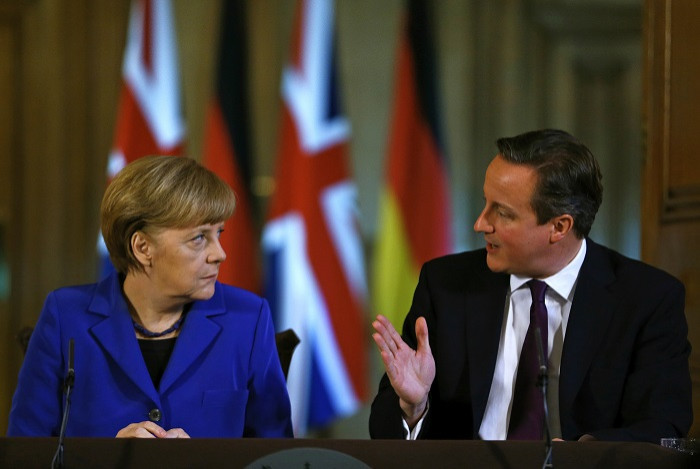Isolated David Cameron Threatens to Use 'L-Bomb' to Block Juncker Appointment

David Cameron has run out of both options and allies in his bid to stop federalist Jean-Claude Juncker becoming the new EU Commission president, and is now reportedly ready to deploy the "nuclear option".
With ministers accepting the UK is now isolated in the EU, it is being suggested the prime minister is considering invoking the little known and even more rarely used Luxembourg Compromise, or the "L- bomb", to force a Europe-wide re-think over the appointment.
The measure was originally devised in 1966 as a weapon of last resort to appease the French who were continually being out-voted by smaller states. It allows a country to halt any decision that threatens its national interest.
That is a pretty extreme view of the effect Juncker's appointment would have on the UK and some MPs have been questioning precisely what the national interest argument might be.
More politicians are bemused by the prime minister's hard line, with one senior Tory telling IBTimes UK: "Don't look for a long-term strategy in all this, they don't do that in No10.
"The furthest they look ahead is five minutes and the next Daily Mail headline."

And health secretary Jeremy Hunt, while backing the prime minister, conceded he was a lone voice, saying: "I'm glad that we have got a strong prime minister who's prepared to take those steps, even if it means that he is isolated from time to time."
The latest suggestion has come after No 10 insisted Cameron had succeeded in forcing an 11<sup>th hour vote on Juncker's appointment when the leaders meet in a summit at the end of this week in what was supposed to see the rubber stamping of the deal.
If that fails to block him and Cameron does deploy the "L-bomb" the other 27 leaders would then have to go back to the drawing board and come up with a fresh candidate acceptable to everyone at some point in the future.
But with other EU leaders already clearly exasperated with Cameron's intransigence, it is possible any attempt to use the device would spark a real crisis.
Leaders might simply refuse to recognise it and try to plough ahead anyway and there must be the chance it could be challenged through the European courts. It is a particularly vague process in any case and would be seen as threatening to pitch the EU into standstill.
In any case, alongside Cameron's other alleged behind-the-scenes threat of withdrawal from the EU if he fails to get his way, this one was being viewed as a sign of increasing desperation after he backed himself into a corner in a bid to look tough to his Eurosceptic backbenchers.
The prime minister has certainly won some praise from that faction for his tough stance but, if he fails, they are unlikely to be so forgiving.
The full extent of other leaders' anger with the way the prime minister has played his hand emerged with the publication of secretly-recorded remarks by Poland's foreign minister, Radoslaw Sikorski.
He claimed Cameron "f***ed up" negotiations and accused him of short-term tactics aimed at placating his Eurosceptics while indulging in "stupid propaganda".
Finally there must be the slim prospect that, if Cameron continues to deploy every available blocking tactic, the EU leaders will simply decide not to make a decision this week and delay for a further period of weeks or even months to allow a compromise.
But that might be seen as giving too much to a single country, the UK. And, in any case, as the leaders attempt to come to terms with the results of the recent EU election setbacks, delay is the one thing that leading players like Germany's Angela Merkel are desperate to avoid.
© Copyright IBTimes 2025. All rights reserved.






















